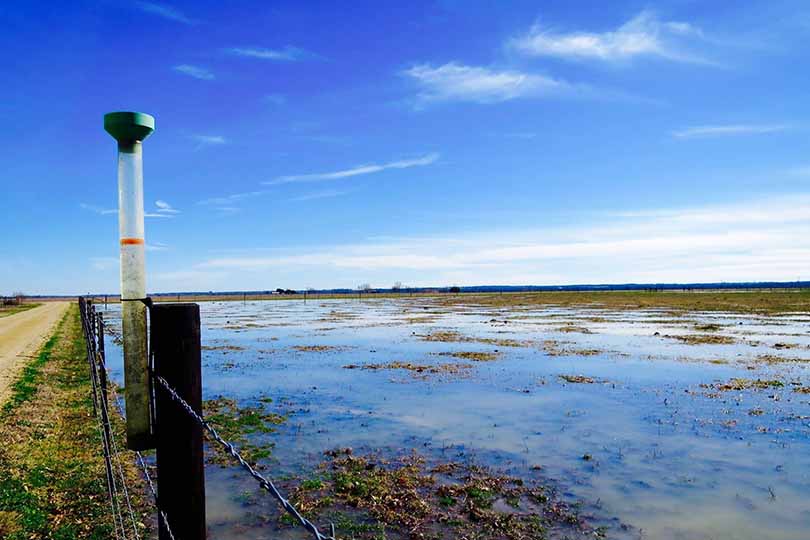By Carey Martin
TFB Radio Network Manager
The U.S. Environmental Protection Agency (EPA) recently held the first of 10 scheduled roundtable discussions to gather input on the agency’s rewrite of a controversial water rule—Waters of the U.S. (WOTUS).
The nation’s largest farm organization was disappointed in the roundtable meeting, saying it did not address farmers need for clear rules and lacked diversity needed to discuss the rule.
“In theory, these meetings are designed to bring folks with different perspectives together to talk about regionally specific implementation concerns pertaining to WOTUS,” Courtney Briggs, American Farm Bureau Federation senior director of Government Affairs, said. “The list of participants for this first roundtable was diverse on paper, but we are very concerned about the lack of diversity of experience on the panel. Few of these participants have actually navigated the regulatory process associated with Clean Water Act compliance.”
EPA is undertaking a third revision of the rule, first proposed as the Waters of the U.S. rule under the Obama administration, then rewritten as the Navigable Waters Protection Act under the Trump administration. The Trump-era rule received widespread approval from farmers, ranchers and agricultural groups.
When asked by Texas Farm Bureau Radio Network why the Biden administration wanted to redo a rule that many in agriculture support, EPA Administrator Michael Regan said it was necessary.
“We want to provide some regulatory certainty and a durable rule,” Regan said. “The prior WOTUS and President Trump’s WOTUS were vulnerable to litigation, and we have an obligation to comply with the Clean Water Act.”
Regan said the agency is scrapping the Trump rule and going back to the original WOTUS framework with some changes to reflect court challenges to it.
“We’re going back to the pre-2015 rule with an upgrade in terms of codifying some recent Supreme Court rulings that would flow into the 2015 law,” he said.
There are nine more roundtables scheduled. Briggs hopes those will give agriculture a better chance to have a seat at the table, since there was no representation at the first meeting.
“I think the credibility of the roundtable was hurt by the lack of any mainstream agricultural representatives at the meeting,” she said. “EPA can only make an informed decision if it seeks out and listens to all viewpoints, and we share the goal of clean water that was expressed by many of the participants. But farmers and ranchers need clear rules, and this roundtable failed to address how both of those goals can be achieved.”
The next roundtable meeting is scheduled for May 23.


Why should Texas be involved in this? Unlike other states, the Republic of Texas owned all of its surface water resources prior to statehood. When did it cede those resources to the Federal Government? The Feds should not have any say over resources belonging to Texas.